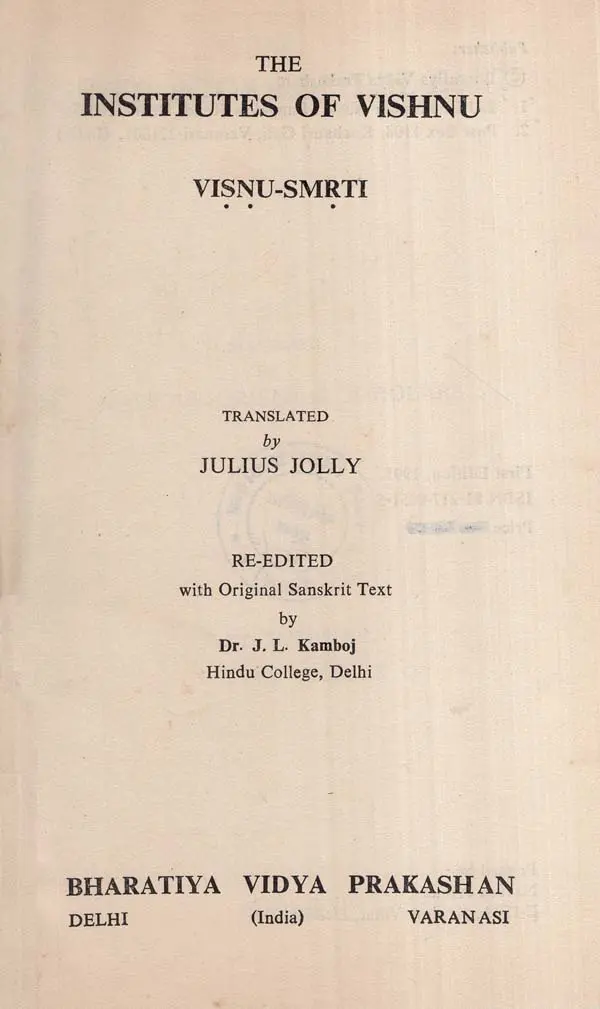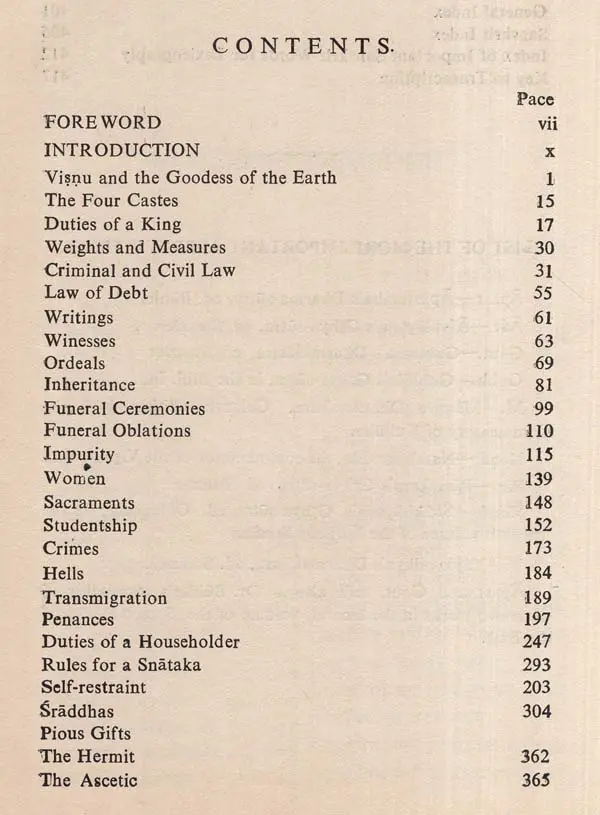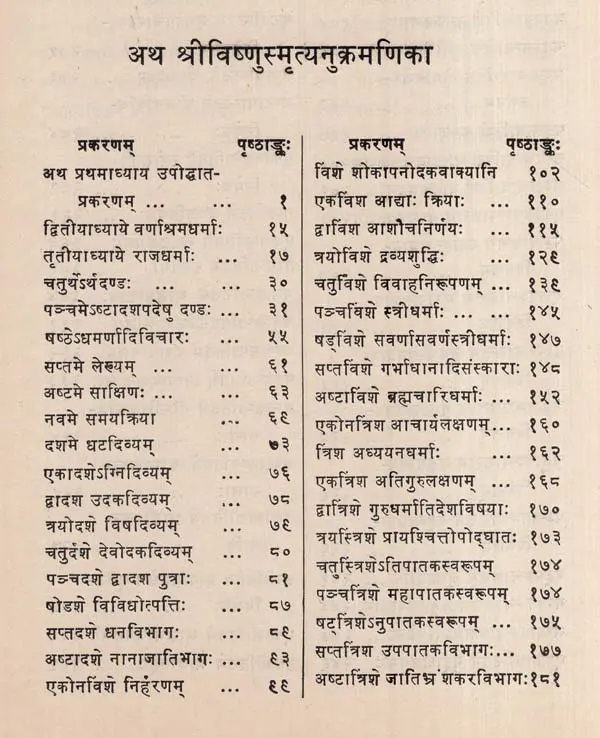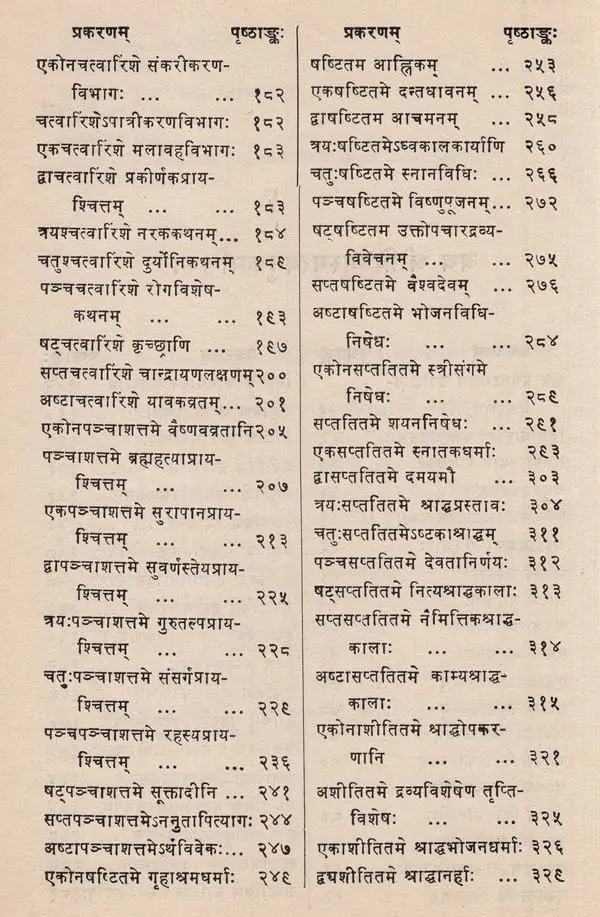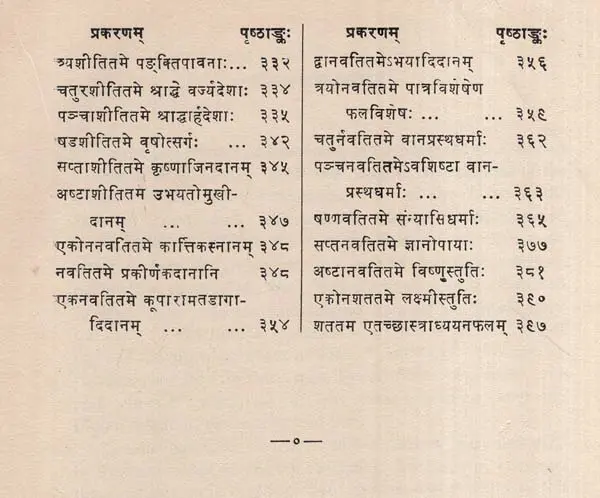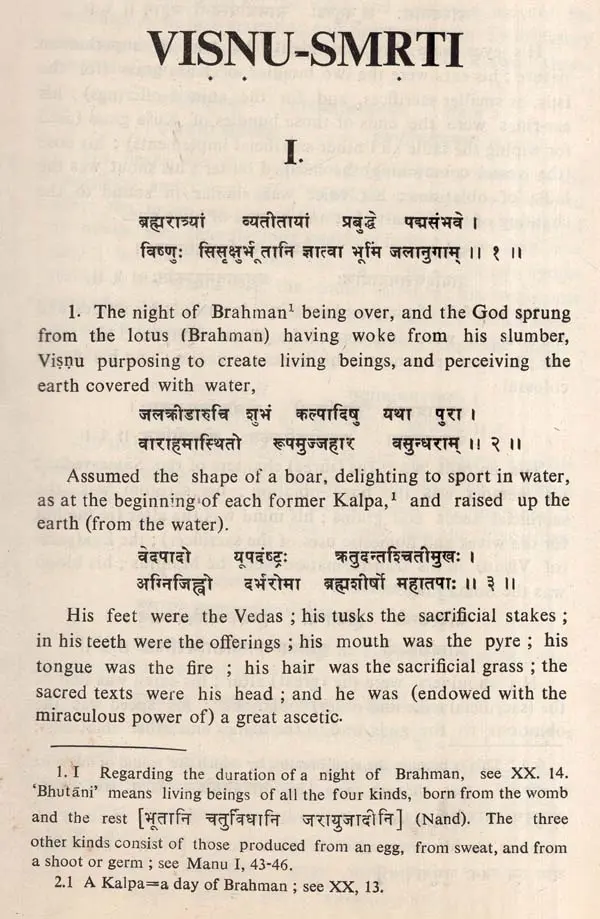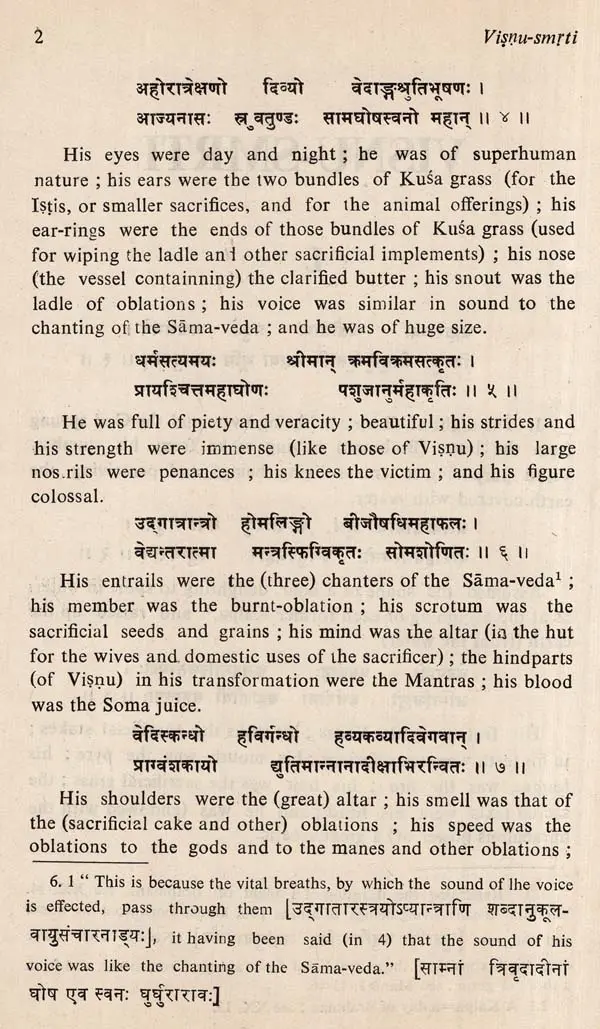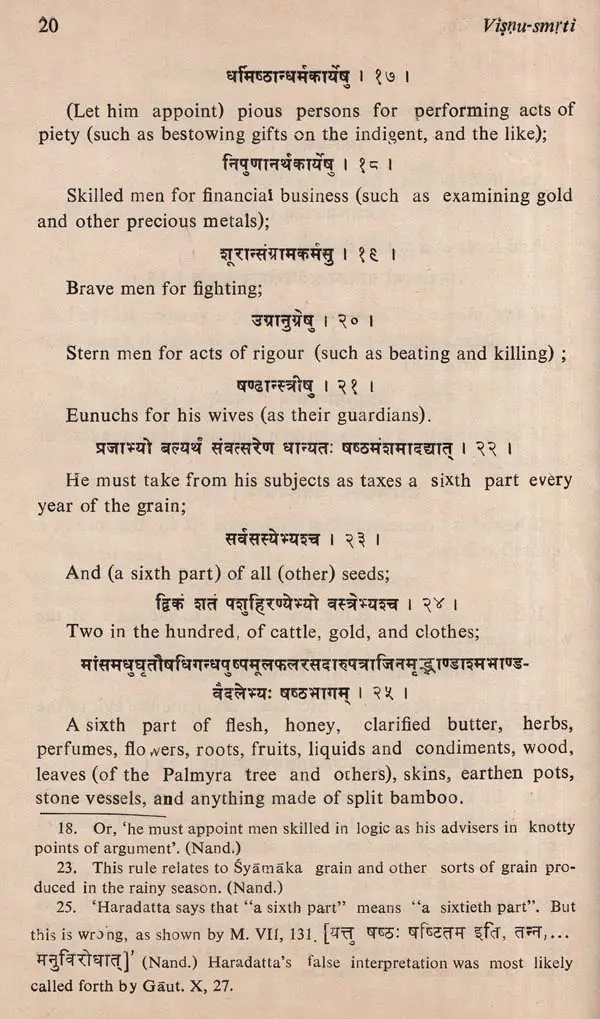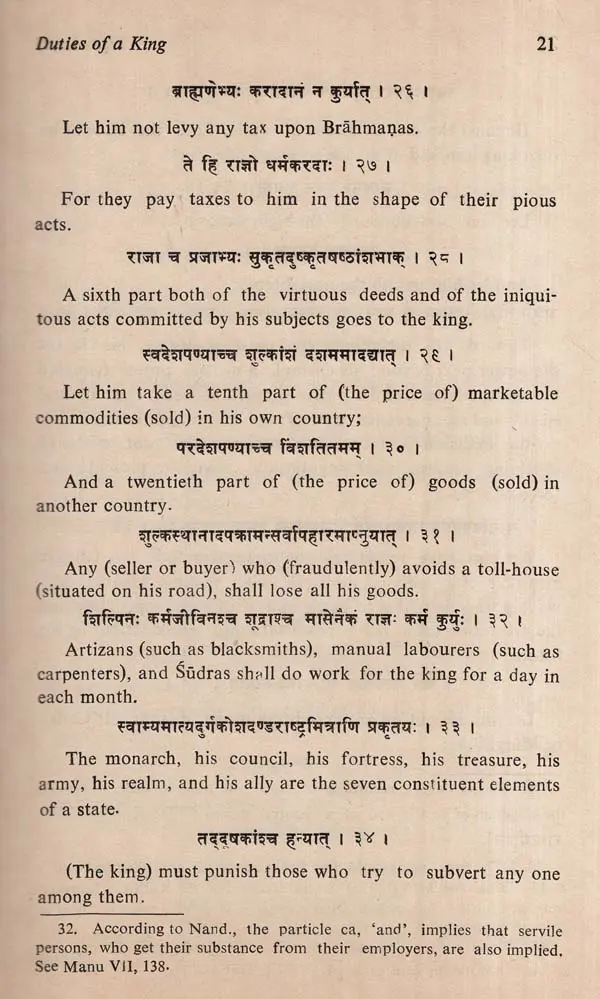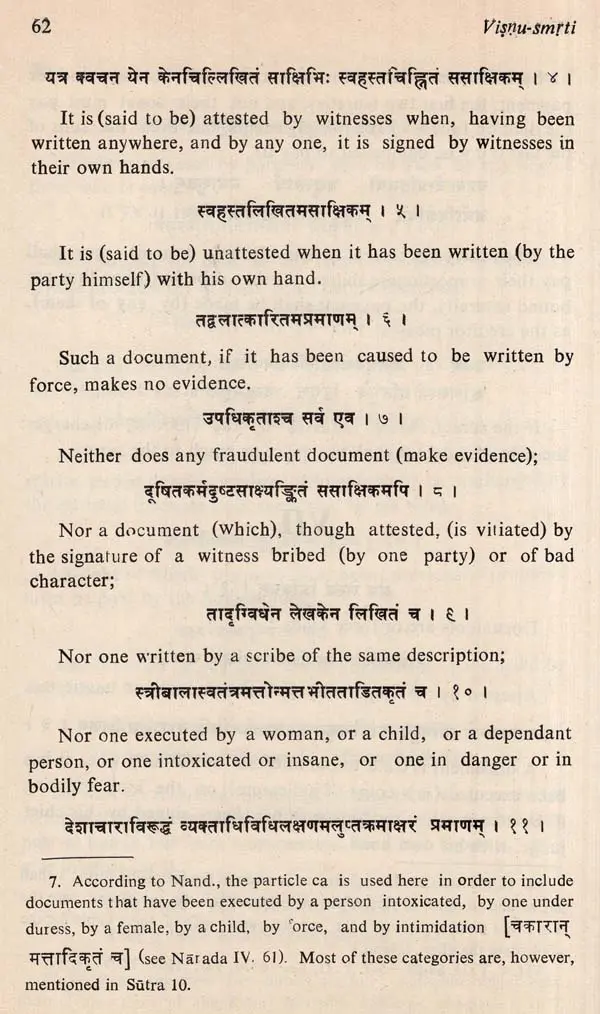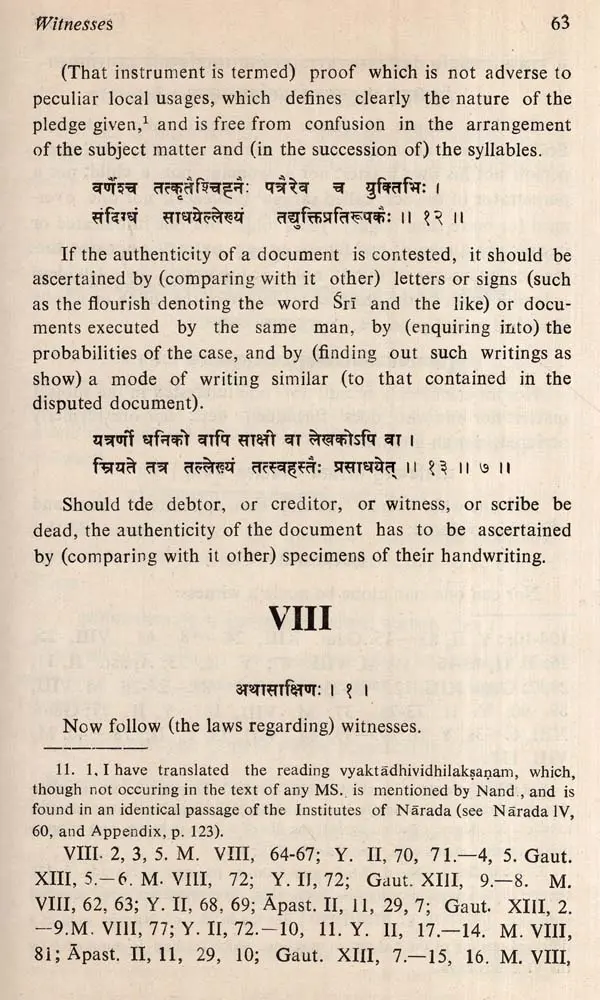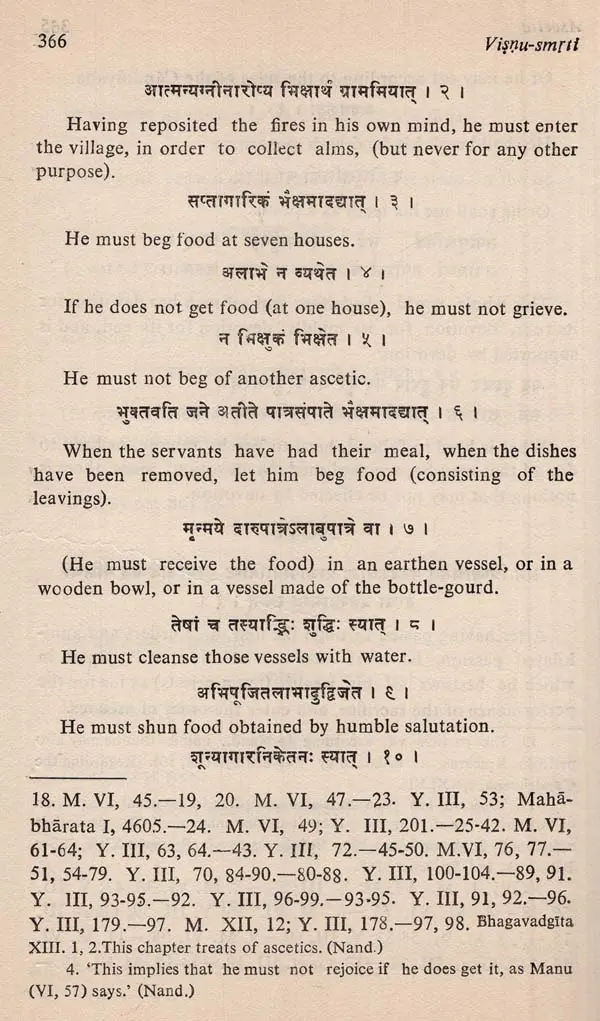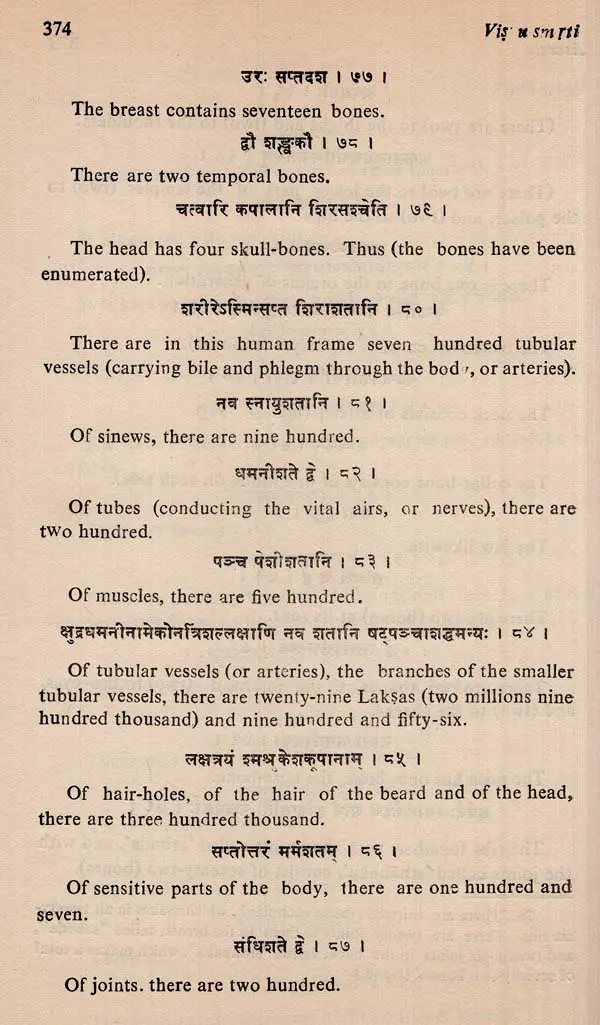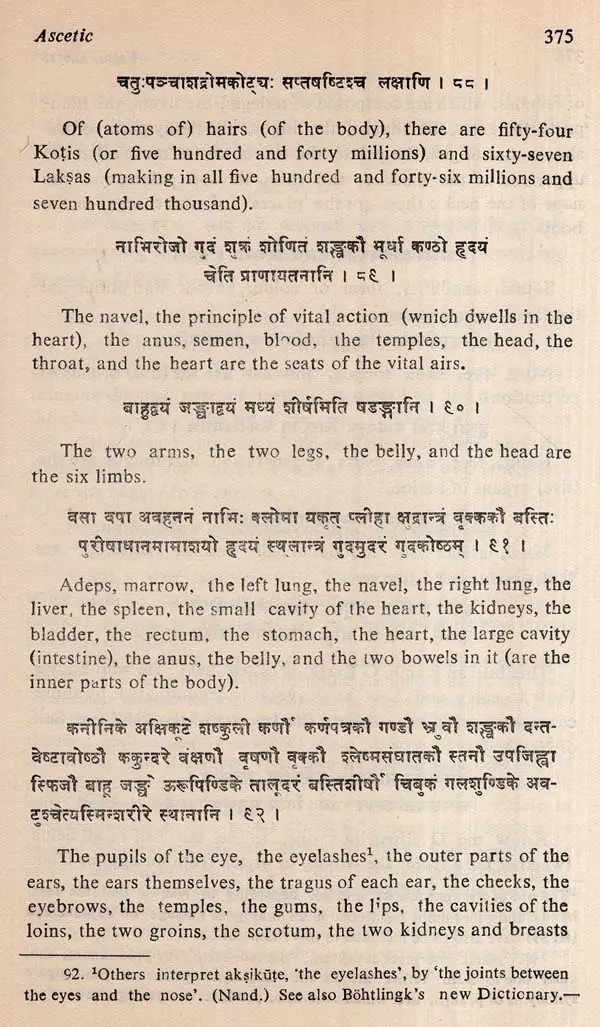
The Institutes of Vishnu-Visnu-Smrti (An Old and Rare Book-Volume-VII)
Book Specification
| Item Code: | UAN418 |
| Author: | Julius Jolly and Jialal Kamboj |
| Publisher: | BHARATIYA VIDYA PRAKASHAN, Delhi |
| Language: | Sanskrit Text with English Translation |
| Edition: | 1991 |
| ISBN: | 8121700515 |
| Pages: | 455 |
| Cover: | HARDCOVER |
| Other Details | 8.50 X 5.50 inch |
| Weight | 580 gm |
Book Description
Scholars in the East and the West are Unanimous of opinion that an original text is more important than its translation. Max-Muller, the editor of the translations of the Sacred Book of the East, himself wrote "Translations can do much, but they cant I never take the place of the originals". Taking this fact into consideration a new project, has been undertaken by Bharatiya Vidya Prakashan, Delhi and Varanasi, to publish the volumes of SBE on Indology with their original texts. The present Volume (SBE VII) has been prepared on this very pattern. The Specialities of this book are :-
1.The original text of the Vishnu Smriti Ed. by Jullis Jolly, the trans. lator himself, has been given with the translation.
2. Roman script improved upon with certain diacritical marks for particular Sanskrit sounds and in common use by Sanskrit scholars in the West has been made use of in the place of the old transliteration adopted for the translations of the Sacred Books of the East.
3. 'Additions and Corrections given on p. 312 of the second Edition have been inserted in their proper places.
In the last quarter of the nineteenth century the great savant Professor Max Muller published English translations of the religious books of the Brahmanas, and of the followers of Buddha, Zarathustra, Khung-fu-tse, Lao-tse and Mohammed in the historical Sacred Books of the East Series. The main aim and object of this publication was to acquaint scholars, particularly those of the West, with the wisdom of the East and to afford most valuable information not only on the religions but also on the moral sentiments and the legal maxims of some of the most important nations of antiquity. Out of fifty volumes published in this series twenty-four, i.c. about one half, contain translations of the most important works on Indian religions, philosophy and law.
The distinguished scholars, whose services were procured by Professor Max-Muller for rendering translations, occupied. the foremost rank in their own special departments of the oriental literature, and therefore the work done by them is considered to be the most authentic and reliable. That is the reason that scholars, both in the East and the West, have been using these valuable translations with great benefit.
The Visnu-smrti or Vaisnava Dharmasastra or Visnusura is in the main a collection of ancient aphorisms on the sacred laws of India, and as such it ranks with the other ancient works of this class which have come down to our time. It may be styled a Dharma-sutra, though this ancient title of the Sutra works on law has been preserved in the MSS. of those Smrtis only, which have been handed down, like the Dharma sutras of Apastamba, Baudha ana, and Hiranya kesin, as parts of the respective Kalpasutras, to which they belong. The size of the Visnusutra, and the great variety of the subject treated in it, would suffice to entitle it to a conspicuous place among the five or six existing Dharma-sutras; but it possesses a peculiar claim to interest, which is founded on its close connection with one of the oldest Vedic schools, the Kathas, on the one hand, and with the famous code of Manu and some other ancient law-codes, on the onher hand. To discuss these two principal points, and some minor points connected with them, as fully as the limits of an introduction admit of, will be the more necessary, because such a discussion can afford the only safe basis for a conjecture not altogether unsupported regarding the time and place of the original composition of this work, and may even tend to throw some new light on the vexed question as to the origin of the code of Manu. Further on I shall have to speak of the numerous interpolations traceable in the Visnu-sutra, and a few remarks regarding the materials used for this translation, and the principles of interpretation that have been followed in it, may be fitly reserved for the last.
**Contents and Sample Pages**
